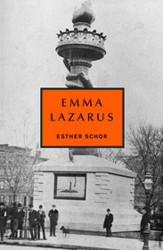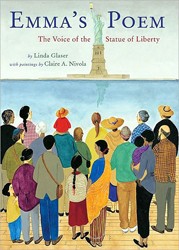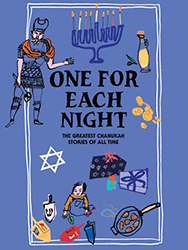“What thoughts I have of you tonight, Walt Whitman,” writes Allen Ginsberg in his poem “A Supermarket in California,” imagining the nineteenth-century poet wandering the aisles: “In my hungry fatigue, and shopping for images, I went into the neon fruit supermarket, dreaming of your enumerations!” Ginsberg’s poem, written in the long, expansive lines we think of as “Whitmanian,” is perhaps the most famous encounter in poetry between Whitman and an American Jew. Most people would be hard put to think of any others; but in her new study, Walt Whitman and the Making of Jewish American Poetry, poet and scholar Dara Barnat describes Jewish American poetry as a long series of engagements with Whitman. By focusing on four sets of Jewish poets — all linked to Whitman through their shared grappling with historical, social, and political circumstances — her book offers new ways of thinking about Jewish writing, intertextual dialogue, the continuum of the secular and the sacred, and American poetry itself.
Whitman is a foundational figure for American poets generally, but Barnat argues that his style, modes, subject matter, and personae have interested Jewish poets from High Modernism (beginning shortly after World War I) to the present day. Barnat considers self-consciously Jewish poets like Muriel Rukeyser and Alicia Ostriker alongside those whose Jewishness has been muted — either by the poets themselves or by readers’ emphasis on other elements of their work — such as Kenneth Koch and Adrienne Rich. Charles Reznikoff, Karl Shapiro, Ginsberg, Gerald Stern, and Marge Piercy are the other main figures through whom Barnat argues that “Whitman’s texts, and in several cases (such as for Rukeyser and Stern) even Whitman’s imagined physical body, are a site through which poets negotiate experiences of being Jewish in America.”
One poet particularly well served by Barnat is Shapiro, who may be best known as the lone dissenting voter on the committee that awarded the Bollingen Prize to Ezra Pound in 1949; he cast his vote on the grounds of Pound’s antisemitism. Barnat’s tracing of Shapiro’s complex relationship to Jewishness in his poems and prose will draw new readers to his work.
Barnet goes on to read the social and political activist Rukeyser as an example of Whitman’s “prescient poet,” a prophetic figure who “possesses special insight and disseminates this insight to society at large.” She analyzes the ways in which Rukeyser “appears to channel Whitman’s all-encompassing eye (and I) to convey her critique of America.”
Every reader who’s acquainted with Jewish American poetry will think of more poets to add to this list. Along with the dozens Barnat mentions in her introduction, one might also include Chanda Feldman, Dana Levin, Bert Meyers, Brooke Sahni, sam sax, Rachel Wetzsteon, and Ava Winter — just to name a few who would widen the field in terms of their engagement with ethnic and racial identity, gender expression, poetic form, politics, and/or religious practice.
Barnat’s book is, like Whitman’s poetry, expansive and welcoming. Its framework will enable future readings of Jewish American poets across spectra of belief, identity, and experience.
Nan Cohen is the author of the poetry collections Rope Bridge and Unfinished City and the chapbook Thousand-Year-Old Words. The recipient of a fellowship from the Yetzirah conference for Jewish poets, her poems have recently appeared on The Slowdown and in The Beloit Poetry Journal.





